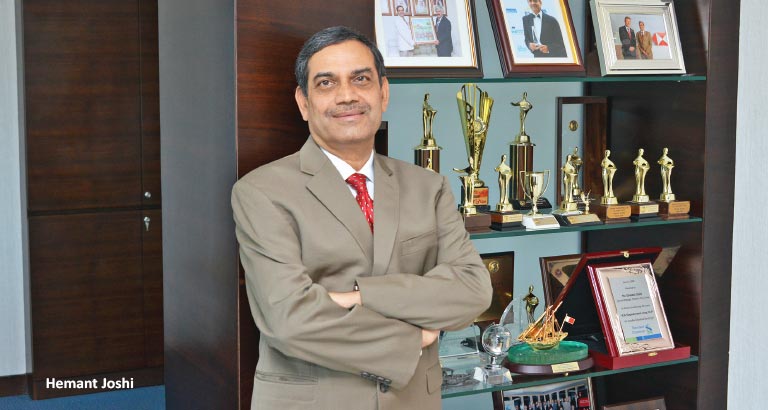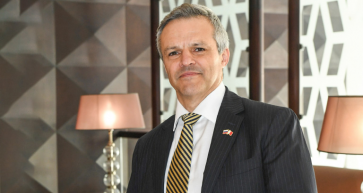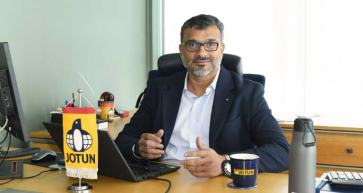
International trainer in Neuro-linguistic Programming, Hemant Joshi, tells Behnaz Sanjana how life can be turned around for the better by just harnessing the infinite powers of the human mind.
Hemant Joshi, director at Abdulla Nass Group and Nass Corporation, has been with the conglomerate ever since he came to Bahrain 23 years ago. He is the first Indian to be appointed to the board of a publicly listed Bahraini company and has been honoured as the chief financial officer of the Middle East for the year 2015 by the Institute of Chartered Accountants of England. A regionally acclaimed author and professional speaker, he is also an internationally accredited trainer in Neuro-linguistic Programming (NLP). “I came away impressed and fascinated by the concept of NLP at a seminar in London in the ‘90s,” says Hemant. “I went on to complete the practitioner’s and master’s courses. On gaining sufficient knowledge and expertise in the subject, I completed the trainer’s programme. I studied under Richard Badler himself, the father of NLP.” Since then, Hemant has conducted over 150 workshops, free of cost in the GCC and India, as a way of community service.
Explaining the concept, he says: “NLP has three aspects to it. Neuro refers to the nervous system and the mind, linguistic is the language patterns one uses to communicate [with the outside world as well as internally], and programming relates to conditioning your mind. We are all conditioned since childhood, by the influences of our parents, peers, teachers and culture. We develop set habits and ways of thinking, and we respond and react accordingly. It becomes our core that we think is unchangeable. But NLP can change this programming for our betterment, by way of our five senses. It enables us to respond to life’s varied situations in an ideal manner.”
This is a science and an art that has many modules, and applies to personal and professional life. It enables one to filter information in a rational manner, to respond appropriately. “It has a lot of applications in the corporate field – it teaches negotiation skills and enhances productivity and motivation,” adds Hemant. “On a personal front, it’s a powerful branch of psychology that can effectively erase unpleasant memories, negative beliefs, anxieties and phobias in real time.”
He attributes his own professional success to this concept, saying: “NLP allows for better interaction with different types of people; seeing things with a higher perspective; expressing your disagreements in a suitable way; giving the benefit of doubt and creating strong rapports with our associates. It helps students and professionals to deal with difficult individuals, handle inadequacies, rejections and obstacles and also set goals and achieve results.”
Of late, Hemant has been engrossed in a different mind concept – that of memory. He explains that it’s not a matter of being a genius, but of skill, and has nothing to do with how intelligent one is. He says: “There is no good or bad memory, only a trained or untrained one. Certain techniques can help to remember big chunks of data – even whole dictionaries or religious scriptures. The key is how you code information as pictures and images, making it easy for the brain to retrieve it.
“I want to spread this awareness amongst school and college-going children because, with this kind of training, one can do wonders with just 10 to 15 minutes of daily practice. The method uses our ability of mental imaging, similar to techniques of NLP. So, it’s easy for me to explain this notion to people.”
Hemant has been training under memory grandmasters Alex Mullen and Florian Dellé, and refers to himself as a memory enthusiast. As with NLP, he does free workshops on memory training, time permitting. He says: “My professional work doesn’t leave me much free time, but I am happy to share my knowledge with others. The feedback received is so satisfying. People tell me that it has enriched their lives and empowered them to deal with situations better. It’s all in the mind. You are what you think you are. All the resources required to be the best are within us. If only we knew this, how different life would be!”



